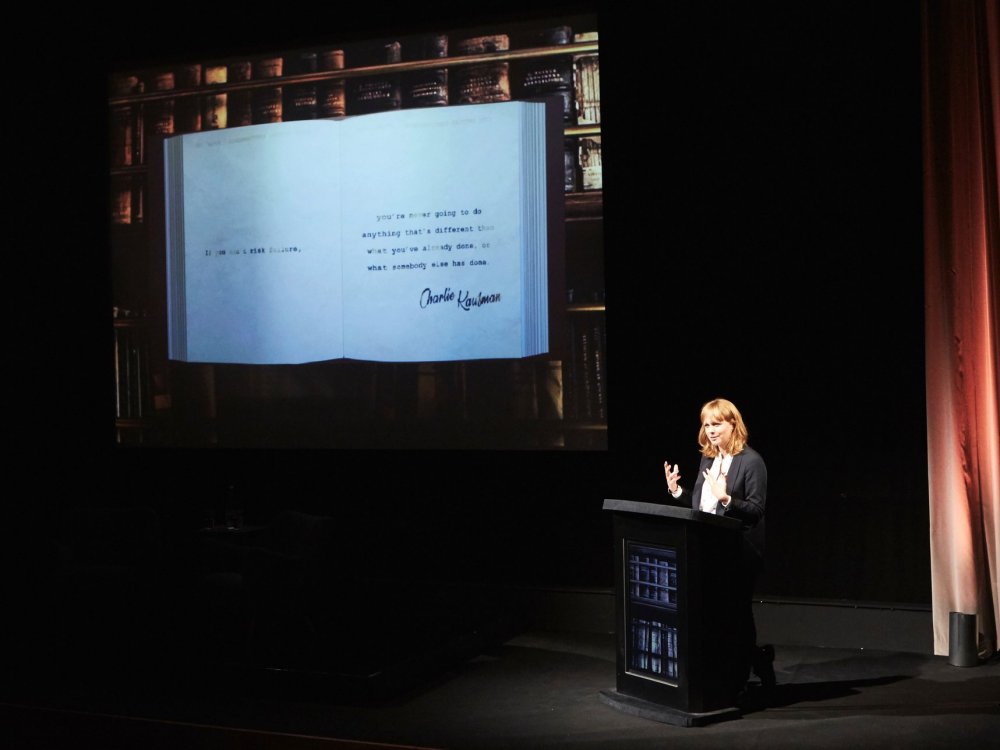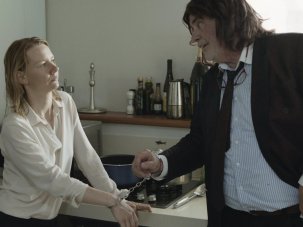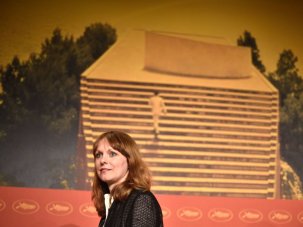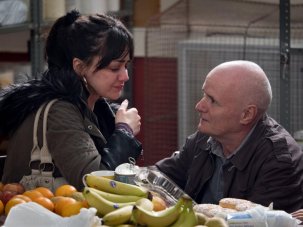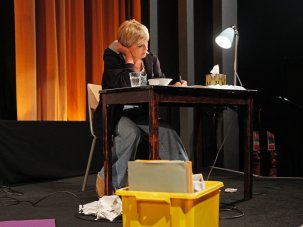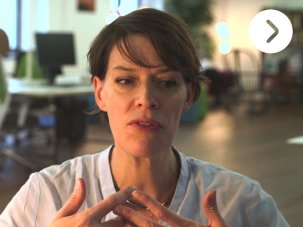For Maren Ade, “writing is a process that never stops.” The German filmmaker is a meticulous writer-director who spends years writing and researching her character-based dramas. Ade initially started studying production at the University of Television and Film in Munich as she believed directing to be too difficult. But she later changed her mind and swapped onto a directing course, after realising she really wanted to tell stories.
Maren Ade was talking at BAFTA’s Screenwriter Lecture Series. The series continues in October with Park Chan-wook talking at BFI Southbank, London on 22 October and Phil Lord and Christopher Miller speaking at BAFTA on 25 October.
Her first long script turned into her graduation film The Forest for the Trees, which won the Sundance Special Jury Prize in 2005. Everyone Else, her second film, evolved out of the idea of a couple talking the whole time. For her, a pair of characters is the starting point for all her scripts.
Ade’s latest film, Toni Erdmann, a father-daughter drama which swings between melancholy and comedy, was Sight & Sound’s gala at this year’s London Film Festival and will be coming to UK cinemas early in 2017. We don’t want to ruin any of its expertly crafted surprises but we couldn’t resist sharing some of the screenwriting advice that Ade shared at a BAFTA lecture after the screening and which gives intimate insight into her creative process.
1. Having an idea
It’s so simple, but find something personal. My films are not autobiographical. I write about something that I know. But I make it bigger, or more intense for a film. It’s always a process that involves finding out something about myself. Because it’s personal you’re not sure if it’s something that other people will be interested in. Don’t get too nervous and throw something away too early. I always take a deep breath and put as much in the story as I can.
2. Write a thesis
It’s good to have a thesis about how the film should be. There’s a document where I just write “I want to make a film that is like…; that tells that…” Just to sometimes look at that document and then go back to the script and see: Did it really work out like that? Am I close to that? Also in that document I write about what interests me: emotionally, politically; what’s my personal take on a topic?
3. Follow your fantasy
I always try to alternate writing between two phases. There’s one phase where I don’t censor myself. I just brainstorm. Follow my fantasy. No art police allowed. I am emotionally open to the topic and also try and follow everything that comes into my mind.
4. Listen to music
I like to listen to cheesy songs when writing. You know, when you’re writing in the morning and you’re thinking, how can I connect with my emotions?
5. Phone a friend
When I’m in the first stage, when there’s not a finished script, I always try to find a friend who I feel free with. I always try to tell them the story myself. That helps a lot. Really telling someone the story, you feel immediately where it is stupid or embarrassing – you talk faster to them. You can see how people react to that.
6. Writing the script
This brainstorming process always has a natural ending. I get fed up after a while. I get empty. The next phase is writing the script. It’s nice for me to tell myself this is something I do for six or seven weeks and afterwards, when I have produced chaos, I will go through and analyse it. I do believe that the more often you go over a dialogue, it gets better. All my scripts I’ve worked on for between one and two years.
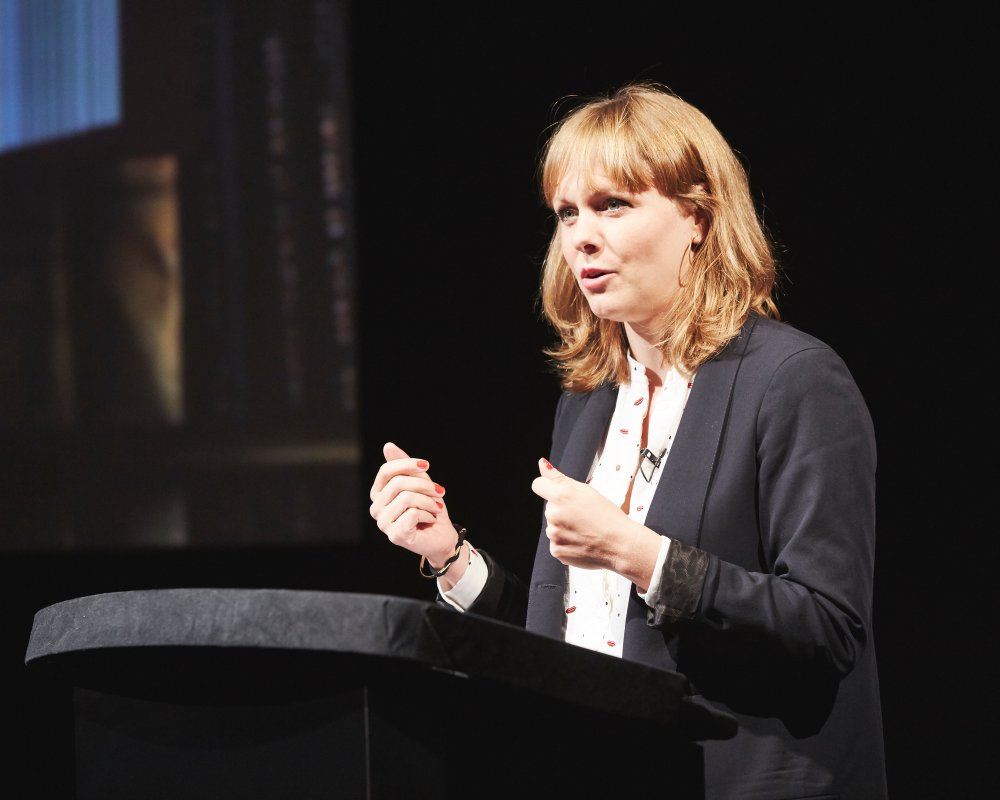
Credit: BAFTA/Jonathan Birch
7. Writing characters
I think everything I do is to try and get my characters as rich as possible. To try and understand them as much as I can. To really go into their perspective. With scriptwriting, it’s really good to put yourself into each character, even if it’s just a side character. To think about their personal needs in a situation even if on the surface it doesn’t serve the plot too much.
8. The script and casting
I never use the script with the casting. I think it’s very dangerous. Actors prepare for casting differently. For me it’s always good when they are open and able to react. I always write completely new scenes for the casting.
9. Writing during the shoot
I continue writing during the shoot. I don’t like it but it really helps. You get a good feeling about where to make the film shorter. I always like going into shooting with not too reduced a script; it’s always a bit longer than it should be. I believe there is always something to find out on the shooting day. Because of that I always try and leave some air, some possibilities.
Then I try to shorten the script in the evenings during shooting. I always meet with the actors and write a biography for them. Especially for the ones I don’t have time to work with more carefully. I write down what their job is, where they come from. Even with actors who just have one sentence in the film. I think it’s so important to fill them up from the inside, that they have their own story.
10. Writing and editing
The editing is the end of the writing process. I end up with a lot of footage. It’s more like an archive. But it’s very nice to build the film in the editing, to combine things that I couldn’t have directed. And the writing continues even with the subtitles. You cannot just let someone do the subtitles. I worked with very good subtitlers on the English version [of Toni Erdmann] for four weeks. It’s so important that it’s close to the German. But you often have to shorten it and you always lose something.
-
The Digital Edition and Archive quick link
Log in here to your digital edition and archive subscription, take a look at the packages on offer and buy a subscription.




